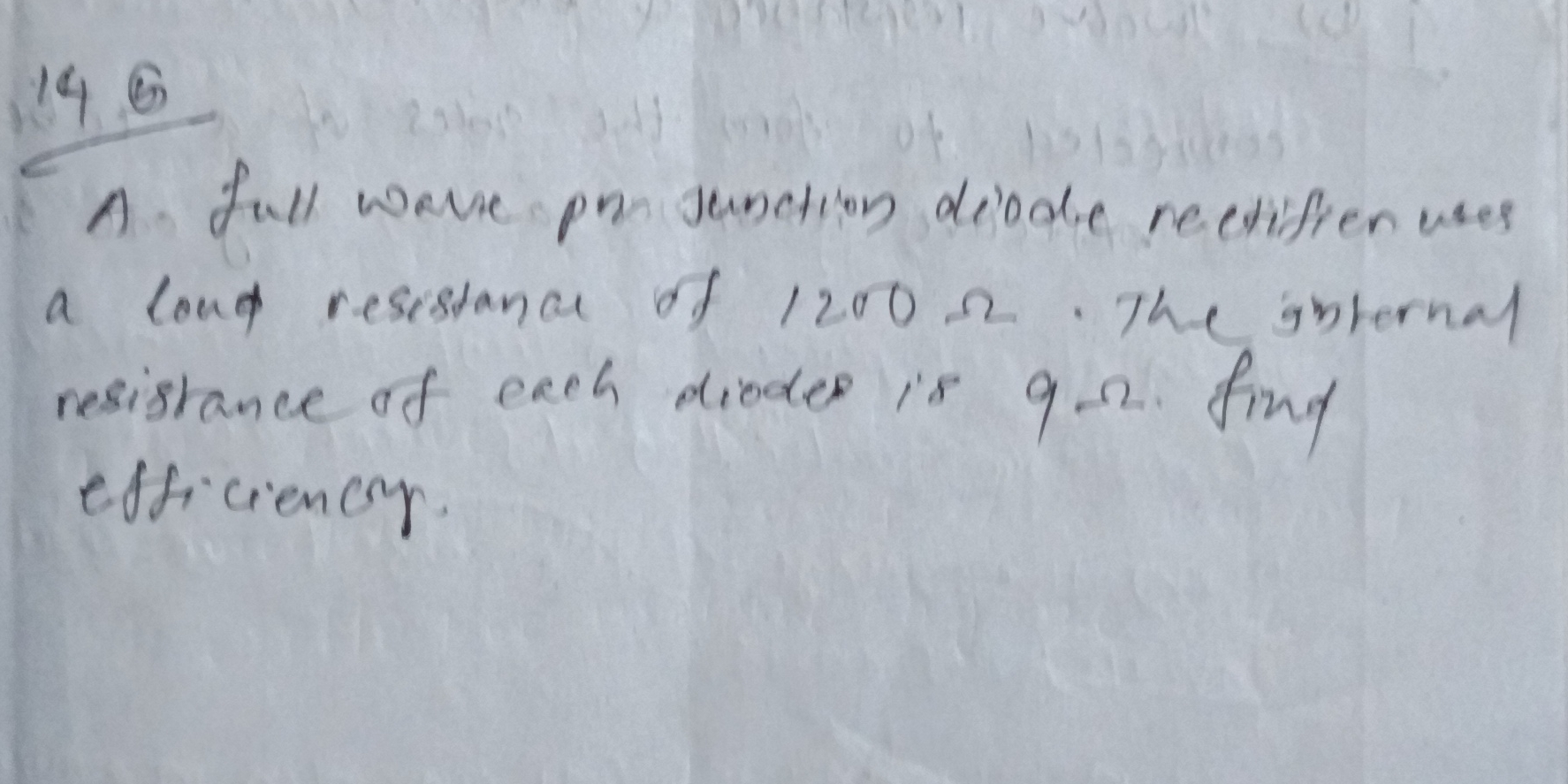A full wave bridge diode rectifier uses a load resistance of 1200 Ω. The internal resistance of each diode is 9 Ω. Find efficiency.

Understand the Problem
The question is asking to determine the efficiency of a full-wave bridge diode rectifier based on given resistance values. We will calculate efficiency using the provided load resistance and the internal resistance of each diode.
Answer
The efficiency is approximately \( 98.51\% \).
Answer for screen readers
The efficiency of the full-wave bridge diode rectifier is approximately ( 98.51% ).
Steps to Solve
- Understand the given values
Identify the values provided:
- Load resistance, ( R_L = 1200 , \Omega )
- Internal resistance of each diode, ( R_d = 9 , \Omega )
For a full-wave bridge rectifier, there are two diodes in series during conduction. Thus, the total internal resistance is: $$ R_{total_diodes} = 2 \times R_d = 2 \times 9 , \Omega = 18 , \Omega $$
- Calculate total resistance
Now add the load resistance to the total diode resistance:
$$ R_{total} = R_L + R_{total_diodes} $$
Substituting the known values:
$$ R_{total} = 1200 , \Omega + 18 , \Omega = 1218 , \Omega $$
- Calculate the efficiency
The efficiency ( \eta ) of the full-wave rectifier is given by the formula:
$$ \eta = \frac{R_L}{R_{total}} \times 100 % $$
Substituting the values:
$$ \eta = \frac{1200 , \Omega}{1218 , \Omega} \times 100 % $$
- Perform the calculation
Calculating the efficiency: $$ \eta \approx \frac{1200}{1218} \times 100 \approx 98.51 % $$
The efficiency of the full-wave bridge diode rectifier is approximately ( 98.51% ).
More Information
Efficiency in rectifiers indicates how effectively the input power is converted to output power. A higher efficiency means less power is wasted in the form of heat, which is crucial in power electronics applications.
Tips
- Ignoring the total internal resistance: When calculating the total resistance, ensure that the internal resistances of both diodes are considered.
- Forgetting to convert the ratio to a percentage: Efficiency is often expressed as a percentage, so always remember to multiply the ratio by 100.
AI-generated content may contain errors. Please verify critical information